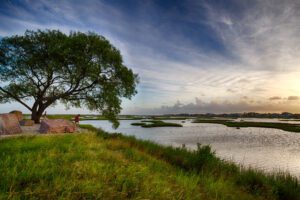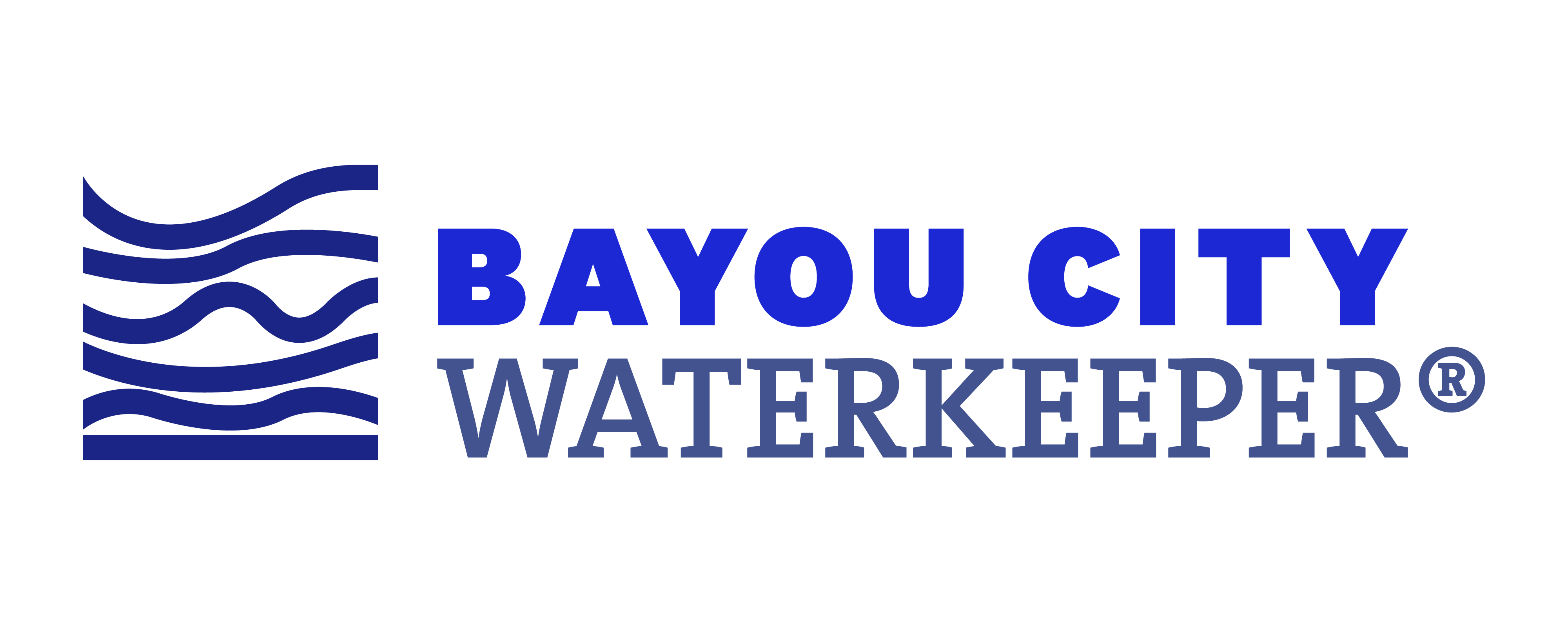This editorial was originally printed in Galveston County’s The Daily News.
Protect coastal wetlands to fight floods, pollution
By Jordan Macha
In Texas, we depend on water. From Lake Livingston down to Galveston Bay, a complex network of waters connects our region. We live among over 2,500 miles of bayous, 120,000 acres of wetlands, three major rivers and countless streams.
Currently, the Trump administration is proposing to remove whole categories of waterways of their Clean Water Act protections.
Across the country, wetlands, tributaries, and streams that aren’t connected directly to waters classified as “traditionally navigable” would be stripped of their protected status. Locally, this includes our coastal prairie wetlands — a critical line of defense against flooding and pollution.

Featuring blue-green grasses and golden wildflowers, and heavily used by songbirds, shorebirds and waterfowl, wetlands are more than a beautiful natural feature. Wetlands act as storm buffers, mitigate flooding, and play an essential role in keeping our waters clean.
Unfortunately, these beautiful, wide-open spaces have been a landing spot for industry and residential development. The price: 24,600 acres of freshwater wetlands destroyed in less than 20 years according to a 2010 Texas A&M Agrilife study. Many of these were lost to subsidence and over-development across the region.
These wetlands could’ve provided 4 billion gallons of stormwater detention to the region. Such detention costs roughly $50,000 per acre-foot; at that rate, the loss corresponds to at least $600 million of lost stormwater detention.
This detention was sorely needed when Hurricane Harvey stalled over the upper Texas Coast, dumping at least 36 inches of rain in little more than a week — nearly reaching our annual average. Harvey was directly responsible for 68 deaths, 36 in Harris County alone. All but three of those deaths were caused by freshwater flooding.
Sam Brody of Texas A&M University at Galveston has repeatedly confirmed that being surrounded by wetlands has the strongest influence on reducing flood damage. In contrast, he found that flood damages strongly correlated with the alteration or loss of wetlands.
Removing federal protections means that we’ll have to rely on the state to protect our remaining wetlands. Unfortunately, Texas routinely under-enforces existing laws. In Harris County alone, 144 entities violated the Clean Water Act in at least six of the last 12 quarters. Of those 144, only 25 faced a formal enforcement action.
We cannot preserve local water quality and wetlands without maintaining federal protections. The current administration’s proposal undermines science and common knowledge by purporting that our waterways can be isolated from each other — and from us. In the case of Texas’ coastal wetlands, much of the water they capture and filter makes its way to Galveston Bay. Without them, we’ll be left without a much-needed buffer from flooding and polluted water.
Bayou City Waterkeeper strongly oppose the proposal to gut the Clean Water Act. We implore everyone who cares about protecting our coast from flooding, safe water to swim in, and healthy water for fish to join us by voicing your opposition to the proposal at bit.ly/bcwk_cwa no later than April 15. Our lives depend on it.
Jordan Macha is the executive director and waterkeeper of Bayou City Waterkeeper, which seeks to protect and restore the integrity of our bayous, rivers, streams, and bays through advocacy, education, and action.
